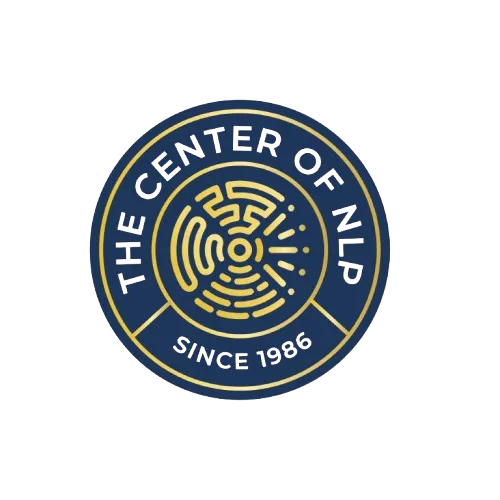
NLP and Listening: Connect and Relate Effectively
Neuro-Linguistic Programming (NLP) can play a significant role in enhancing our ability to listen and relate to others. NLP is a set of techniques and principles that explore the relationships between language, thoughts, and behavior, and how they can be used to improve communication and understanding. When we listen to relate, NLP can help us in the following ways:
Building rapport:
NLP emphasizes the importance of building rapport, which is a harmonious connection with others. This can be achieved through mirroring and matching techniques, where we subtly match the non-verbal cues, such as body language, tone of voice, and pacing of the person we are listening to. This helps create a sense of trust and connection, which can facilitate effective communication and relationship-building.
Sensory acuity:
NLP emphasizes developing sensory acuity, which involves paying close attention to the verbal and non-verbal cues of the person we are listening to. This includes not only their words, but also their facial expressions, gestures, and tone of voice. By being more aware of these cues, we can better understand the emotions, needs, and perspectives of others, and respond more appropriately and empathetically.
Effective questioning:
NLP teaches effective questioning techniques that can help us clarify and deepen our understanding of what the other person is saying. By asking open-ended questions that encourage the person to share more information and express their thoughts and feelings, we can gather more insights and show genuine interest in their perspective.
Language patterns:
NLP focuses on the use of language patterns that can facilitate effective communication. By using language that is precise, positive, and solution-oriented, we can create a supportive and empowering environment for the person we are listening to. NLP also emphasizes the importance of avoiding judgmental language or making assumptions, as these can hinder effective communication and create barriers to relating to others.
Flexibility and adaptation:
NLP emphasizes the importance of being flexible and adaptive in our communication style to better match the communication preferences of others. This means being willing to adjust our language, pace, and style of listening based on the individual we are communicating with. This flexibility allows us to better understand and connect with others, and build more meaningful and authentic relationships.
Overall, NLP can play a significant role in helping us improve our listening skills and enhance our ability to relate to others by promoting rapport-building, sensory acuity, effective questioning, language patterns, and flexibility in our communication style. By incorporating NLP principles into our listening approach, we can foster better understanding, empathy, and connection with others, leading to improved relationships and effective communication.
Why NLP is a valuable tool for building rapport and achieving success?
NLP, a powerful tool for personal development, offers techniques that can help individuals improve communication skills and establish better relationships. With its focus on building rapport and achieving success, the NLP community provides a supportive environment for individuals to learn strategic NLP teaching, and discover the success patterns and elegance of NLP. By understanding the principles behind NLP success patterns and mastering NLP elegance training, individuals can hone their skills to achieve their goals. NLP techniques for building rapport, such as mirroring and pacing, can help individuals establish connections with others, while tips for overcoming NLP challenges can help individuals navigate resistance or difficulties in Learning NLP success patterns. Through case studies and real-world examples, the power of NLP for building rapport and achieving success becomes clear.
Joining the NLP Community
Joining the NLP community is essential for anyone looking to learn and apply the success patterns and elegance of NLP, especially for building rapport with others. In the NLP community, you can connect with like-minded individuals who share your interest in the strategic NLP teaching approach, and benefit from their experience and expertise. You will have access to a wealth of knowledge and resources on learning NLP success patterns, as well as NLP elegance training. Being part of an NLP community provides a supportive and collaborative environment to enhance your NLP skills and techniques. You can practice and refine your NLP techniques with others, and receive feedback on your progress. The NLP community for building rapport is also a great way to overcome common challenges in NLP and get inspired by case studies of successful NLP applications. Joining the NLP community is a surefire way to accelerate your learning and improve your ability to build rapport with others.
Learning Success Patterns
To achieve success with NLP, it's essential to learn the success patterns that underlie this powerful approach to communication and personal development. Learning these patterns can help members of the NLP community to build rapport with others and achieve their goals through strategic NLP teaching and NLP elegance training.
By studying the success patterns of NLP, individuals can gain a deeper understanding of how NLP works and how to apply it effectively in various contexts. This involves learning about key NLP techniques and strategies for building rapport, such as mirroring, matching, and pacing, as well as developing an appreciation for the elegance of NLP and how it can help us to achieve our desired outcomes.
With a solid understanding of NLP success patterns, members of the NLP community can become more effective at teaching NLP to others, helping to spread the benefits of this powerful approach to communication and personal growth. By mastering the principles and techniques of NLP, we can build rapport and achieve our goals with greater ease and elegance.
Strategic NLP Teaching
In the world of NLP, strategic teaching is crucial for building rapport and achieving success. By understanding the key success patterns of NLP and engaging in elegance training, members of the NLP community can enhance their skills and learn how to effectively teach NLP to others. Strategic NLP teaching involves breaking down the complexity of NLP techniques into manageable steps, tailoring the approach to the individual needs of learners, and providing ample opportunities for practice and feedback. By leveraging strategic NLP teaching, instructors can help their students master NLP techniques for building rapport, such as mirroring, matching, and pacing. In addition, strategic teaching can help learners overcome challenges in NLP and optimize their results. By fostering a supportive and collaborative learning environment within the NLP community, strategic teaching can help members develop a deep understanding of NLP principles and techniques and achieve greater success in their personal and professional lives.
NLP Elegance Training
NLP Elegance Training focuses on mastering the art of NLP to achieve optimal results. Through this training, participants can refine their understanding of the NLP community, including the key success patterns and techniques for building rapport. They can also learn how to strategically teach NLP to others using effective communication and coaching skills. With NLP Elegance Training, individuals can deepen their knowledge of NLP and develop a sense of mastery over the techniques, enabling them to achieve their goals with greater ease and confidence. This training also highlights the importance of strategic NLP teaching, which is essential for imparting NLP knowledge to others. By emphasizing the elegance of NLP, participants can improve their ability to connect with others and build rapport, which is a critical component of success. Overall, NLP Elegance Training is a valuable opportunity to refine one's NLP skills and deepen one's understanding of this powerful tool for personal and professional growth.
Building Rapport with NLP Techniques
Building rapport is a crucial part of achieving success, whether in personal or professional settings. NLP offers a variety of techniques to help build rapport, such as mirroring, pacing, leading, calibration, and anchoring. By utilizing these techniques, you can establish a connection with others and increase the likelihood of achieving your goals.
Mirroring involves matching another person's behavior and language patterns, such as their posture or speech rate, to create a sense of similarity and rapport. Pacing, on the other hand, involves matching a person's communication style and rhythm to create a sense of understanding and connection. Leading is the process of guiding the conversation toward a desired outcome without causing resistance. Calibration is the practice of paying close attention to nonverbal cues to understand a person's emotional state and adjust communication accordingly. Anchoring involves associating a particular emotion with a specific cue or stimulus to help the person access that emotion at will.
By mastering these techniques through strategic NLP teaching and elegance training, you can improve your ability to build rapport and achieve success in all areas of life. Joining the NLP community and learning success patterns can also provide additional support and resources for mastering these techniques. Overcoming NLP challenges such as resistance or difficulties with certain techniques can be addressed through focused practice and guidance. By utilizing the power of NLP and these rapport-building techniques, you can achieve greater success in your personal and professional relationships.
Techniques:
Mirroring - matching another person's movements and speech patterns to build rapport.
Pacing - matching a person's communication style and rhythm to create a sense of connection.
Leading - gradually guiding the conversation towards a desired outcome without causing resistance.
Calibration - paying close attention to nonverbal cues to understand a person's emotional state and adjust communication accordingly.
Anchoring - associating a particular emotion with a specific cue or stimulus to help the person access that emotion at will.
Overcoming NLP Challenges
Overcoming challenges is an essential part of mastering the art of NLP. In the NLP community, individuals often encounter obstacles when learning techniques for building rapport, such as mirroring and matching. Strategic NLP teaching and understanding of NLP success patterns can help overcome these challenges. Additionally, mastering NLP elegance through training can provide the confidence needed to apply these techniques in real-life situations.
Some common challenges in NLP include dealing with resistance from others, struggling with certain techniques, or feeling unsure about how to apply them in certain contexts. By acknowledging and overcoming these challenges, individuals in the NLP community for building rapport can achieve success in building rapport and achieving their goals.
Check Out For more:

